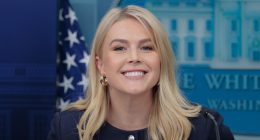Freedom of the Press will not be stifled by a controversial new anti-spying law, the Government vowed yesterday.
A Home Office minister insisted that the National Security Bill is intended only to protect the UK from threats from foreign states and not to interfere with the media.
Lord Sharpe of Epsom said journalists would not be prosecuted for writing articles critical of the Government that might assist hostile states, nor for handling leaked documents.
He said that only people who have been given orders or money by foreign intelligence services would be targeted.
And he pointed out that only state threats are covered by the law, not stories that reveal the ‘amorous adventures of Matt Hancock’.


Lord Sharpe of Epsom said journalists would not be prosecuted for writing articles critical of the Government
His reassurances came after senior politicians, lawyers and media organisations raised fears that the wording of the law – designed to update the Official Secrets Act – could see bona fide journalists jailed for up to 14 years for revealing major scandals and also have a chilling effect by deterring insiders from speaking out.
Addressing the concerns as a series of changes to the draft legislation were raised in the Lords, Lord Sharpe told peers: ‘The Government is committed to defending our freedoms, values that define us and make us who we are, and few are more fundamental to that than freedom of the Press. There is no intention to stifle or censor the media’s ability to expose or shine a light on issues.’
Read Related Also: Men are given the brush off for Waterstones’ book of the year as work celebrating women artists wins
He continued: ‘I want to reassure the media sector that the publication of an article that was critical of the UK Government and which might incidentally be capable of assisting a foreign intelligence service will not fall within the scope of this offence.
‘Nor would the handling of materials in the course of genuine journalistic activities fall within this offence, nor likely the other offences in this Bill.
‘The Government may profoundly disagree with the conclusions of some journalists, but we will not hide behind the criminal law to suppress genuine competing views and it is almost inconceivable that genuine journalism will be caught within the threshold for criminal activity.’
Lord Sharpe said no journalists have been prosecuted under existing espionage or terrorism laws for publishing damaging stories and went on: ‘I wanted to confirm again on the record that the focus of this Bill is on protecting the UK from threats from foreign states and those acting against UK interests, not interfering with a free Press.’
However, he rejected the proposal by some peers that would have carved out a defence for recognised news publishers. ‘Even if hostile state actors did not currently use journalistic cover to engage in espionage, having a defence like this would almost certainly encourage them to do so,’ he warned.
That amendment was withdrawn.
Lord Sharpe also dismissed an attempt to clarify that journalists would only be prosecuted if they were being paid by a foreign power, saying it could create another loophole to be exploited.
That amendment was not added to the Bill, while a number of attempts to secure public interest defences were voted down.




